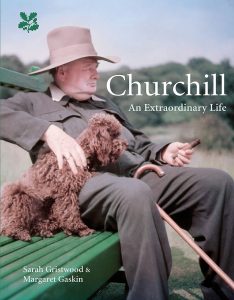

Wif still exists in English in a context closer to its original meaning in the word "midwife" - "woman who is with" (mid being a cognate of the Old Norse miðr (with), seen today in languages like Icelandic "með", Danish "med", etc)Įven "girl" has changed. In Middle and Old English, woman was wif, which later became wife the word "woman" comes from "wifman", or "woman-man", in the context of the gender-neutral usage of man that's been steadily dropped from English over the past half century (aka, more like "woman-person"). Lots of words related to women have changed over time, it's sort of weird. It stems from the proto-germanic kwoeniz (wife), from PIE gwen (woman, wife), cognate of Greek gyne (woman, wife), Gaelic bean (woman), Sanskrit janis (woman), etc. Queen comes from Old English cwen (queen, woman, wife) - having originally been in the context of "wife (of a king)", and only later to refer only specifically to royals. If you were writing that hundreds of years ago, that's be a perfectly normal statement. This doesn't make him some sort of Nostradamus, but it does mean that he was paying close attention to the technological developments of his time and thinking over their implications with an analytic mind. Something that actually was done in World War II, but a decade and a half after Churchill wrote that. Flying weapons "by wireless or other rays", aka remote controlled (passive or active) aircraft is an entirely different thing. īTW, the autopilot invented in 1914 was just a self-leveling system with a compass - it wouldn't be anywhere near accurate enough for guiding flying weapons. (*) - That quote was published in 1929 and written in 1925. He got the minimum size wrong, but apart from that, that's pretty prophetic.

If you have anything from before 1925(*) that's so accurate of a description of what nuclear weapons actually were, I'd like to see it. Heinlein wrote about the development of a nuclear weapon to end World War II 1940 ("Solution Unsatisfactory"), but it was about a dirty bomb. Wells coined the term "atomic bomb" in 1914 in "The World Set Free", but they were like ordinary bombs that continued exploding for days. Don't get me wrong, people were speculating about harnessing the energy of the atom for weapons.

Churchill also notes that life can only survive in regions "between a few degrees of frost and the boiling point of water" - what today we call the habitable zone, the region around a star that is neither too hot or too cold, so that liquid water may exist on the planet's surface. For example, he notes that water is the key ingredient for life on Earth, and so finding water on other planets could mean finding life there. The British leader also talks about several theories that still guide the search for alien life, Livio says. Churchill's reasoning mirrors extremely well the way scientists think about this problem today. What's impressive about the essay is the way Churchill approaches the existential and scientific question of whether life exists on other planets, Livio says. He wrote this decades before exoplanets were discovered in the 1990s hundreds have since been detected. Because of how enormously distant these extrasolar planets are, we may never know if they "house living creatures, or even plants," Churchill concludes. Riley showed him the essay, titled "Are We Alone in the Universe?" In the essay, Churchill reasons that we can't possibly be alone in the Universe - and that many other Suns will likely have many other planets that could harbor life. The astrophysicist was visiting Westminster College in Fulton, Missouri, for a talk last year, when he was approached by Timothy Riley, the director of Fulton's US National Churchill Museum. The Verge reports: Livio was "stunned" when he first saw the unpublished, 11-page essay on the existence of alien life, he tells The Verge. "The essay was drafted in the 1930s, but unearthed in a museum in Missouri last year." Astrophysicist Mario Livio was the first scientist to analyze the article and has published his comments in the journal Nature. "A newly discovered essay by Winston Churchill shows that the British statesman gave a lot of thought to the existential question that has inspired years of scientific research and blockbuster movies: are we alone in the University?" reports The Verge.


 0 kommentar(er)
0 kommentar(er)
